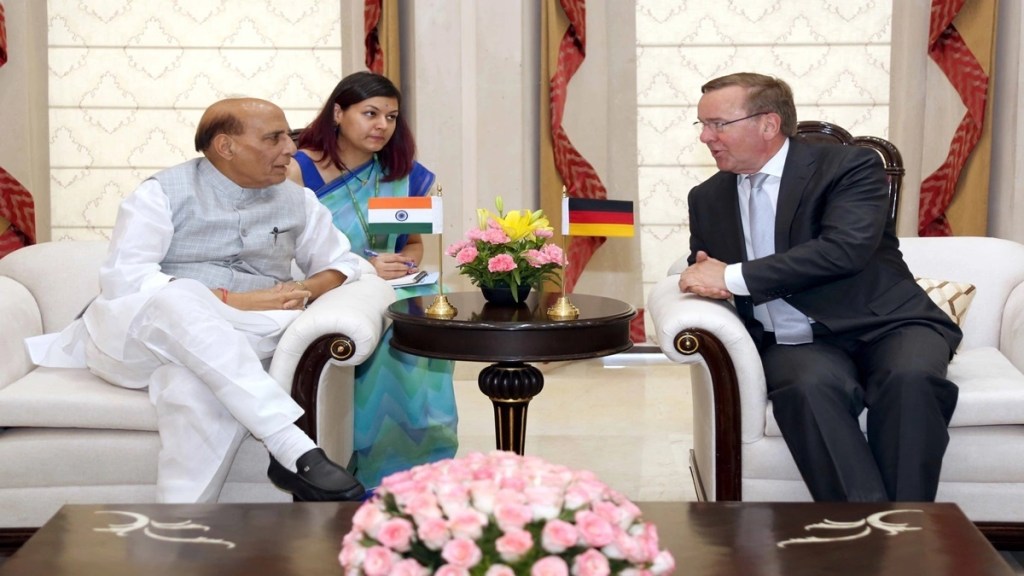Stage is all set for a deal to be announced soon between India and Germany to firm up a deal to build diesel submarines at Mumbai located Mazagon Dock Limited (MDL). The deal which is estimated to be worth around US$ 5.2 billion will be through government to government route and Germany’s Thyssenkrupp Marine Systems (TKMS) and MDL are expected to join hands.
Visiting German Defence Minister Boris Pistorius at the end of his meeting with Defence Minister Rajnath Singh said “We are talking about a deal of TKMS, about six submarines but of course the procedure is not finished yet but I think the German industry is at a good place in that race.” He was responding to a question from the accompanying media.
Financial Express Online has reported earlier that the German company is one of the contenders for the six advanced diesel-electric submarines under Project-75I, the Request for Proposal (RfP) for which has been extended until August this year. The Project 75 (I) has been stuck for a long time due to technical and legal issues related to the RfP that was issued by the Ministry of Defence in 2021.
The first time the proposal for the submarines through government to government route was discussed during the visit of the German Chancellor Olaf Scholz earlier this year in February.
Background
Back in early 2020 the Defence Acquisition Council (DAC) had shortlisted two Indian partners for the Project 75 (I) — MDL and Larsen & Toubro (L&T). These were the first to be processed under the Strategic Partnership (SP) model of the Defence Procurement Procedure (DPP).
The original five foreign contenders in the race for Project 75 (I) included: Naval Group (France), Navantia (Spain), Rosoboronexport (Russia), Thyssenkrupp Marine Systems (TKMS, Germany) and Daewoo Shipbuilding & Marine Engineering (South Korea). The RfP for the six submarines was issued way back in July 2021 to two Indian companies which were identified – MDL and L&T. These two Indian companies were given 12 weeks to respond. However, since then it has been extended several times and as of now the last date to respond to the tender is in August this year.
What led to the delay and uncertainty?
Indian Navy’s Project 75 (I) has run into problems due to several issues including a specification as mentioned in the RfP related to the Air Independent Propulsion (AIP) module. It has been specified that the foreign company bidding for the project should have an operational AIP with an endurance of two weeks.
Technically, globally is available with only two countries: Germany and South Korea. The Original Equipment Manufacturer (OEM) had raised their concerns on the issue of unlimited liability on them.
While the DAC has addressed several concerns raised by the OEMs, sources in the industry have said there are still some concerns that need to be addressed. The German company TKMS after having talks with L&T decided to team up with the Indian shipyard MDL and once the deal is firmed up through Intergovernmental Agreement the German company will transfer technology to build the submarines here in India.
Why is AIP critical for submarines?
According to naval experts the AIP module is very important for conventional submarines as it allows them to remain submerged for a longer duration. This means as a force multiplier it reduces the chances of a submarine being detected and the AIP increases their endurance.
DRDO has developed an AIP, which is expected to be installed on the Scorpene class submarines of the Indian Navy when the boats come up for retrofit next year onwards.
India Navy’s Submarine fleet
So far Indian Navy has just 16 conventional submarines which are in service. These include seven Russian Kilo-class submarines, five French Scorpene-class submarines and four German-origin HDW submarines.


